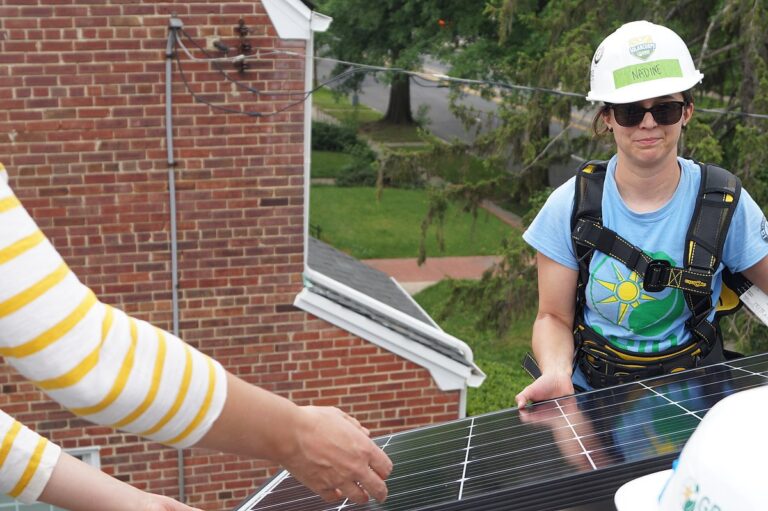This week, Women in Solar Europe (WiSEu Network) takes an important step by shedding light on health and safety issues for women in the solar and energy storage industries, a crucial topic that became even more relevant following the celebration of World Safety and Energy Day . Occupational health on April 28.
The need for a gender-sensitive approach to health and safety in the solar and energy storage sector is not just an issue of equality, but a crucial step as the number of women in the workforce increases. Safety policies, training and education, preventing harassment, violence and discrimination, and promoting health and work-life balance are areas where a one-size-fits-all approach is not sufficient, especially given the gender-specific dangers women face in construction and maintenance environments.
‘Women and men are biologically different, so we need to recognize our differences in the workplace when it comes to health and safety policies and practices. Women face critical issues, especially on construction sites, where, for example, we experience inadequate sanitary conditions. Although every workplace is legally required to have a toilet, this is often not the case. We also experience problems with personal protective equipment (PPE) not meeting our specific body needs, as most are designed for men. At Faria Renewables, we recognize the importance of occupational safety and health, and we strive to improve inclusivity and diversity on construction sites and ensure the needs of women are met,” said Thalia Valcouma, CEO and President of Faria Renewables, an international developer and operator. head office in Greece.
According to the PPE survey 2024 of the Women’s Engineering Society (WES), 27% of women versus 60% of men have comfortable or perfectly fitting personal protective equipment. As a result, women face tripping hazards, restricted movement and unsafe working conditions due to ill-fitting personal protective equipment. In general, PPE for women is not consistent with fashion clothing and does not take into account different stages of life, such as menstruation, pregnancy or menopause. As a result, “women are at risk from the equipment intended to prevent harm, and are underrepresented in occupations that require personal protective equipment, and are consequently leaving the workforce.”
‘It’s common to blame the lack of female representation in STEM roles on education, but we need to think about how we retain and support the growth of female engineers so they can become role models for new workers and future generations in the sun and energy storage industry. We have a general lack of industry-specific data showing hazards, and there are no industry standards, so women’s exposure to hazards is highly dependent on company standards. Associations are generally not addressing the issues of supporting different types of organizations on their journey towards inclusive HS environments. That WES research shows that PPE for women is seen as a women’s issue and not as a health and safety issue for employers and policy makers. Yet we can agree that the problem extends to many other aspects in the sector,” says Carmen Madrid, founder of the WiSEu network.
Innovation plays a key role and provides hope to address equality issues, Canan explains Koç Yasar, VP HSSE-S at Uniper Renewables, said: “The future of health and safety expertise will likely involve greater integration of technology, such as wearable devices for monitoring health metrics and AI-driven analytics for identifying and mitigating risks. Digitalisation has significantly empowered women in the health and safety sector by streamlining processes, improving communication and providing access to crucial information. Digital tools and platforms allow women to efficiently manage safety protocols, track compliance, and analyze data to identify potential hazards and mitigate risks.
“Remote monitoring technologies allow them to monitor operations from anywhere, maintaining safety standards even in decentralized work environments. Additionally, digital training resources provide flexible learning opportunities, allowing women to acquire new skills and certifications to advance their health and safety careers. Overall, digitalization facilitates inclusivity and enables women to play a more active role in promoting health and safety in the workplace.”
Interested in joining female industry leaders and experts at Women in Solar Europe? Find out more: www.wiseu.network
The views and opinions expressed in this article are those of the author and do not necessarily reflect those of the author pv magazine.
This content is copyrighted and may not be reused. If you would like to collaborate with us and reuse some of our content, please contact: editors@pv-magazine.com.


